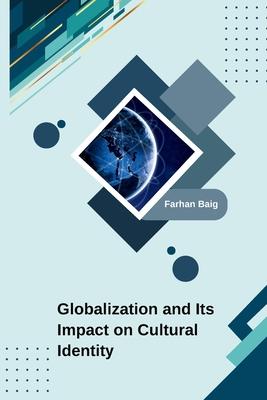Multifaceted as it is, globalization in the last few decades has drastically altered our planet. Cultures are becoming increasingly intertwined as commodities, services, information, and ideas cross international borders in ways that were previously unimaginable. In light of these developments, ideas about cultural identity have been challenged. This essay dives into the delicate relationship between globalization and cultural identity, evaluating how globalization both threatens and enriches the vast tapestry of cultures across the globe.
How to Define Globalization
The term "globalization" is used to describe the multifaceted process by which people from different parts of the world interact and integrate with one another. The economic, political, social, and cultural spheres are all intertwined in this integration. Trade, investment, and economic dependency between countries are all boosted by globalization. It promotes international cooperation and good governance from a political standpoint. In terms of culture, it encourages the sharing of various practices, philosophies, and practices.
Cultural Identity and Its Meaning
What makes a group of people cohesive is their shared cultural identity, which includes their shared values, beliefs, traditions, language, and rituals. It’s the stuff on which a person’s sense of identity and community are built. Interactions with different cultures, historical events, and social shifts all have a role in how an individual’s sense of cultural identity develops over time.
Globalization’s Effect on Sense of Belonging
Globalization has been blamed for fostering cultural homogenization, in which distinct cultural behaviors are diminished in favor of more mainstream global fashions. In particular, the spread of Western values and practices over the world, known as "Westernization," is frequently used to illustrate this point. Cultural diversity, however, can now be better appreciated and protected thanks to globalization. The prominence afforded by global platforms helps underrepresented cultures claim their identities and celebrate their traditions.
Hybridization of Cultures: Globalization stimulates the fusion of cultural elements, leading to the formation of hybrid cultures. When many cultural traditions collide, novel and ever-evolving forms of expression are born. Hybrid cultures demonstrate the resilience of civilizations in the face of globalization and cast doubt on long-held beliefs about cultural purity.
Language and Communication: Language, a fundamental component of cultural identity, undergoes transformation owing to globalization. Many indigenous tongues are dying out since English has become the international language of communication. The importance of linguistic diversity in preserving cultural identity has prompted a resurgence in the fight to protect native tongues and dialects.
Concerns regarding cultural appropriation arise as a result of globalization. Cultural appropriation occurs when aspects of one culture are copied or imitated by another, usually to the detriment of the original culture’s meaning. In today’s increasingly interconnected world, it’s more important than ever to find a middle ground between embracing variety and protecting tradition.












